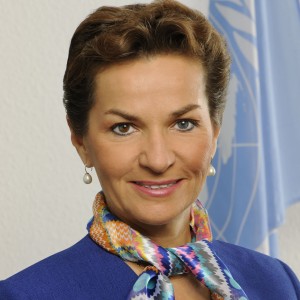
African nations have resolved to take a common position as the basis for negotiations on strengthening the international climate change regime through full, effective and sustained implementation of the United Nations Framework Convention on Climate Change (UNFCCC) and the Kyoto Protocol (KP).
While agreeing that the key messages on negotiations for the 19th session of the Conference of the Parties to the United Nations Framework Convention on Climate Change (COP 19) scheduled to hold this month in Warsaw, Poland should guide and inform discussions by the African group, African environment ministers who met recently in Gaborone, Botswana, affirmed that the UNFCCC and KP constitute the fundamental global legal instrument on climate change, and that the climate change negotiations in Warsaw under the Ad Hoc Working Group on the Durban Platform for Enhanced Action should be in conformity with the principles of the Convention and lay a solid foundation for the completion of negotiations at the COP 21 to be held in Paris, France in 2015.
The minister resolved to call for outcomes of COP 19 that are based on science, equity and common but differentiated responsibilities and respective capabilities, reflecting the latest scientific, technical, economic and social information as, according to them, these outcomes will significantly influence efforts to secure sustainable development for Africa.
Similarly, the ministers reaffirmed at the fifth special session of the African Ministerial Conference on the Environment that a long-term global goal must include ambitious short-term, medium-term and long-term mitigation commitments by Annex I parties reflecting their historical responsibilities and an equitable and appropriate contribution to the global effort, as well as the provision of adequate means of implementation, including finance, technology and capacity-building, to enable Africa to address its adaptation needs in particular.
They declared in the Gaborone Declaration – released at the close of the two-day session – to encourage Annex I parties to the UNFCCC that are not undertaking commitments under the second commitment period of the KP to undertake commitments under the Convention that are comparable in magnitude and effort to those undertaken under the Protocol and that are measurable, reportable and verifiable through an agreed set of common accounting rules and a compliance framework.
Furthermore, the ministers resolved to call on developed country parties to urgently scale up support for the implementation of adaptation measures and national adaptation plans, particularly through the Cancun Adaptation Framework and the Nairobi Work Programme, and to support and expedite work to understand, reduce and compensate for loss and damage associated with the adverse effects of climate change, including its impacts on agriculture.
Likewise, they agreed that the national adaptation plan process should not be prescriptive, but should rather facilitate country-owned, country-driven action, that the formulation of national adaptation plans should build on and complement existing adaptation planning, and that financial and technical support should be provided to African countries to enable the development of the national adaptation plans.
The ministers agreed to recognise and support the Africa Adaptation Knowledge Network as the continental network for coordinating, facilitating, harnessing and strengthening the exchange of information and knowledge for climate change adaptation.
They urged the Green Climate Fund (GCF) Board, in its capacity as an operating entity of the UNFCCC, to allocate increased funding for climate change adaptation in Africa once the Fund becomes operational.
The ministers reaffirmed that agriculture must be treated under adaptation because of its status as a means of livelihood and the backbone of the African economy. They added that agriculture is a priority for Africa and should be treated as a matter of survival, recommending that a comprehensive work programme covering finance, technology transfer and capacity‑building to support sustainable agricultural production in developing countries be established under the Cancun Adaptation Framework, with support from developed countries.
Relevant institutions, including the African Development Bank (ADB) and other regional development banks and partners, were called upon to assist African countries in accessing funding available through the GCF and other global climate funds, and further enhancing their capacity for direct access.
They called for the work to enhance ambition under the Durban Platform to adequately address the need to limit the increase of global average temperature to well below 2.0 degrees Celsius, and to emphasise in this context the urgent need to reflect ambitious commitments under the Bali Road Map in order for Annex I parties to reduce their emissions by at least 40 per cent by 2017 as an equitable and appropriate contribution to achieving the objective of the Convention.
The ministers called for efforts under the Durban Platform to enhance ambition leading to the development of a protocol, another legal instrument or an agreed outcome with legal force under the Convention by 2015 to enter into force by 2020 to reflect all the principles and the provisions of the Convention, including equity and common but differentiated responsibilities and respective capabilities, in order to limit the increase of global average temperature to well below 2.0 degrees Celsius while ensuring equitable access to sustainable development and the sharing of atmospheric space and resources taking into account cumulative historical responsibility and the use of such resources by Annex I parties.
They urged all African countries to participate actively at COP 19.
